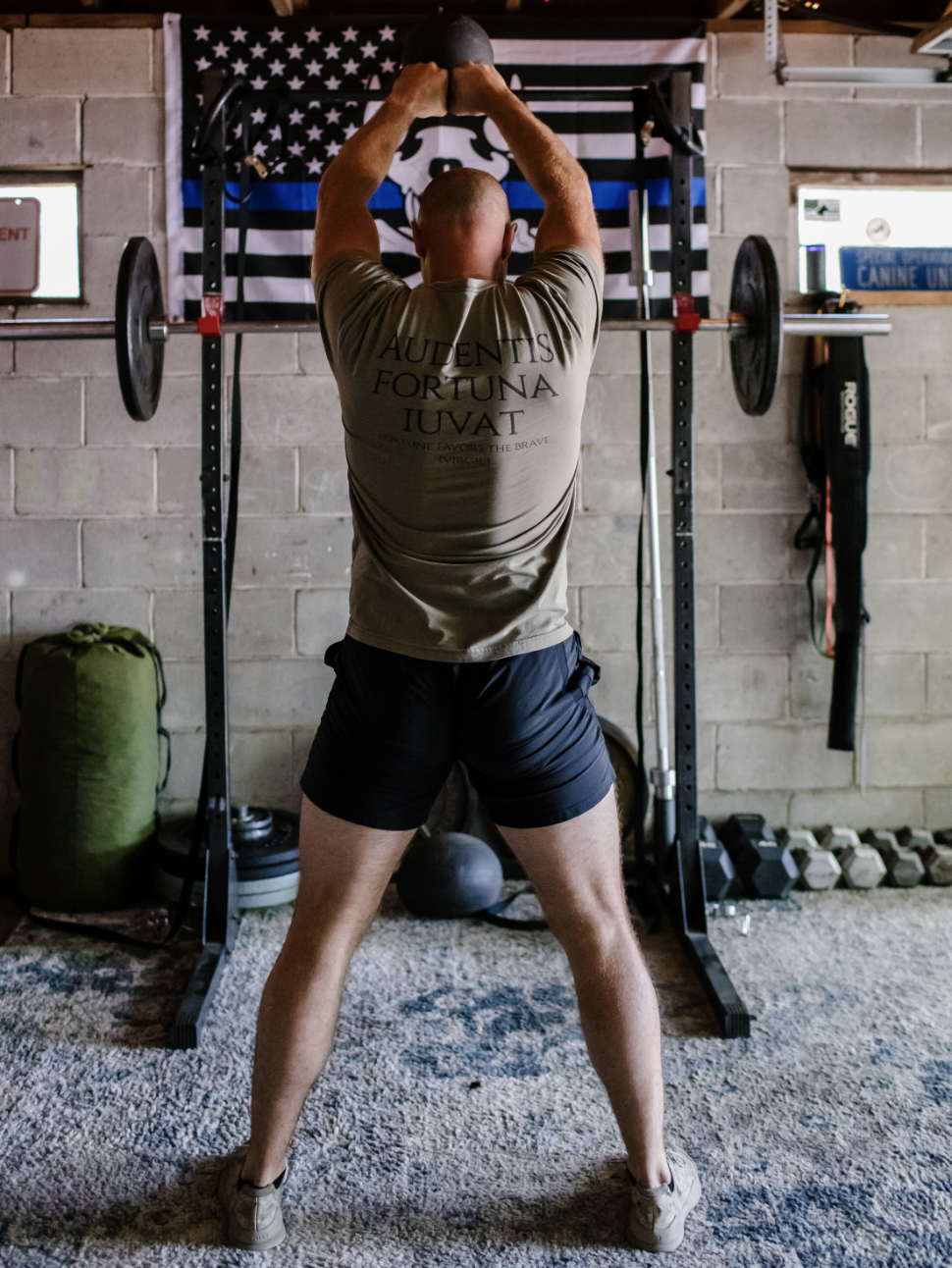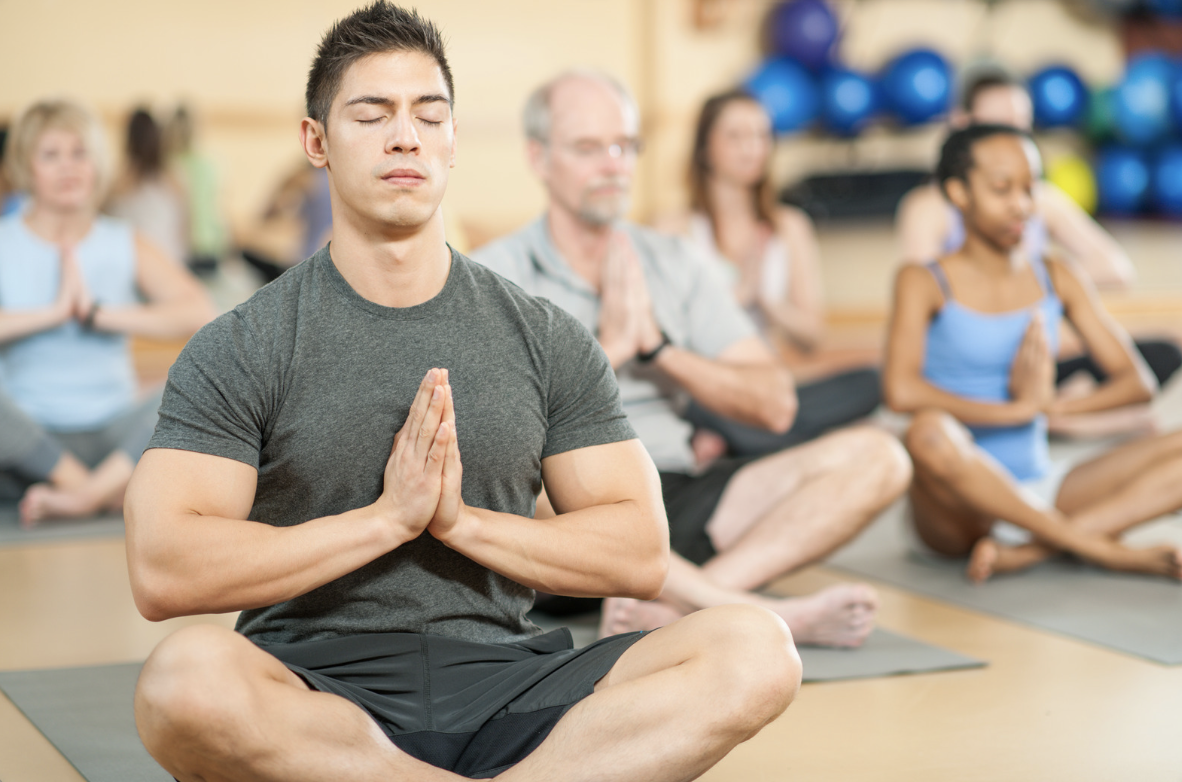5 Ways Yoga Can Benefit an LEO's Health
Jan 15, 2023
When I first started yoga 15 years ago, I went to a hot yoga studio to sweat, lose baby weight, and get my core strength back after a c-section. While all of those things did happen, the unexpected by-product of regularly going to yoga class was my mood and attitude. At the time, I was working as a person’s crime’s Detective, which meant I was always on call, taking care of a new baby that was premature, and dealing with residual medical issues from a complicated pregnancy. Life was stressful, but I started to notice I was more calm and patient long after class ended. I didn’t know why at the time, but thought if yoga could be so beneficial to me, it could also greatly benefit my brothers and sisters in law enforcement, so I became a yoga instructor.
I have been teaching yoga to cops for the past 6 years and the hardest part is getting them there. One of the biggest forms of resistance I hear is lack of flexibility, “Wendy, I can’t touch my toes”. Once they take a class and are able to experience the benefits, they get it. One of my favorite quotes is “Yoga isn’t about touching your toes, it’s about what you learn on the way down”.
Depending on the type of yoga you practice, yoga can be very physically demanding, but as you’ll see there is much more to it.
- Yoga is for Warriors. Yoga’s roots can be traced back to India over 5,000 years ago. Only male warriors preparing for battle were allowed to practice yoga; their physical and mental training. The meaning of the word yoga is union. There are other translations but they all refer to the interconnectedness of the body and mind which is achieved through breathwork, meditation, and physical poses. Present day yoga looks a bit different. It is typically viewed as a female sport with a strong emphasis on the physical poses. According to the Yoga in America Study, over 36 million people in the United States reported practicing yoga in 2016, 28% report trying yoga, 34% say they are very likely to try yoga in the next 12 months, and 10 million men were found to practice yoga.

Besides the physical component, yoga teaches you how to regulate your nervous system and promotes self-awareness. (see #4) These are crucial skills in our line of work and promote coherence between the mind, body, and the heart. If you want to improve performance, try yoga, and remember, “Warriors are skilled in both action and non-action”.
- Build a Better Brain. We all know when we lift weights our muscles get stronger. Think of yoga as weightlifting for the brain. Studies have shown that people regularly practicing yoga had a thicker cerebral cortex, which is the part of the brain responsible for processing information and the hippocampus, the area of the brain involved in learning and memory. As we age, these areas of the brain begin to decline. Add in lack of sleep, stress, and other lifestyle factors associated with policing and this decline is exacerbated.
- Improved Mood. Any time we exercise we boost our mood by lowering stress hormones and increasing the production of the feel good chemicals known as endorphins plus we are bringing in more oxygenated blood to brain. Additionally, researchers have found yoga has been shown to increase a neurotransmitter in the brain called GABA (gamma-aminobutryic acid) which is linked to decreased anxiety and a better mood.
- Yoga Builds Resilience. Resilience is our capacity to navigate adversity, but it also has some front and back end components. We train at the range and DT to improve our performance. This also applies to other lifestyle habits and tools that can help to build resilience or your ability to get through challenging times, like yoga. Whether it be a physical encounter at work such as a car chase, a fight with a suspect, or a critical incident or something we experience personally such as relationship issues, caring for a sick parent, or financial difficulties, our habits create resilience and what we do matters. The common thread with all the above scenarios is the autonomic nervous system and our stress response. Fight or flight or the sympathetic response doesn’t just get activated during a high stress call; it can happen when we argue with a spouse. Whether we are actually in danger or not doesn’t matter; our body responds based on our perception of the situation. The same flood of stress hormones are released regardless, and it’s this consistent dump of hormones that can cause distress and decrease our resilience.
Here’s how yoga can help. Yoga teaches you how to have immediate and direct access to your nervous system and within a few short minutes you can activate the parasympathetic branch of the nervous system, aka: rest and digest. I have had endless cops tell me this one aspect of yoga class has been a game changer for them, and even helped them during deadly encounters. It’s worth mentioning here that there are many other benefits to a yoga practice such as improved mobility, flexibility, strength, proprioception, interoception, improved sleep, injury prevention due to focus on smaller, stabilizing muscles and training in various planes of movement.

On the back end of resilience is post traumatic growth. If you train to be resilient chances are you will navigate and cope with adversity far better and come out better on the other side. We don’t ever ask for bad things to happen, but they do; that’s life. Yoga can help train your nervous system to respond differently, but like any other perishable skill, you must train.
- Yoga and Habit Stacking. If you are reading this blog, chances are you are already practicing good habits or you are interested in creating them. Yoga is one way to begin a foundation of overall well-being. Changing behavior can be a challenge and relying on pure willpower won’t always work, so that’s why I like the concept of habit stacking which I learned from the book “Atomic Habits” by James Clear. It is something I share with my coaching clients and practice myself.
In capitalizing on an established habit you already have, where the neural connections are strong and established, you are taking advantage of or riding the coat tails of those strong connections to build a new habit.
When I want to add in something new, I typically stack it before or after morning yoga since this is an established habit for me. This can be applied to any current habit such as brushing your teeth, drinking a glass of water, working out, meditation, yoga, running etc. Here’s an example: “After I wake up, drink a glass of water, I will sit and meditate or do 5 minutes of yoga”.
After/Before (Current Habit), I will (New Habit).
Whether you already practice yoga or want to give it a try, use the established habit as the gateway to eating a more wholesome diet, meditating, reading, walking, or any other habit you are trying to establish.

About the Author:
Wendy Hummell is a seasoned law enforcement officer with nearly 25 years of experience. She is a retired Detective and spent a majority of her career working Persons Crimes.
Wendy’s area of expertise is officer wellness. She has been teaching yoga, mindfulness, and resilience to First Responders for the past six years. She now works as the Wellness Coordinator for a Sheriff’s Office and has helped to implement a holistic wellness program at the agency. She is passionate about sharing the tools of peer support, mindfulness, yoga, and resiliency, as well as the importance of relationships, exercise, sleep, and nutrition to enhance well-being and job performance. Wendy speaks to these topics from the perspective of direct experience and through the lens of a law enforcement spouse. Wendy’s exposure to secondary trauma, high levels of toxic and chronic stress, and disrupted sleep wreaked havoc on her nervous system. After learning the tools that helped her recover, her purpose became clear: support first responders with the resources they need to not only survive a career on the front lines, but to thrive well into retirement.
Wendy holds a Bachelor’s and Master’s Degree in Criminal Justice. She is a certified yoga instructor, health coach, and podcast host.

